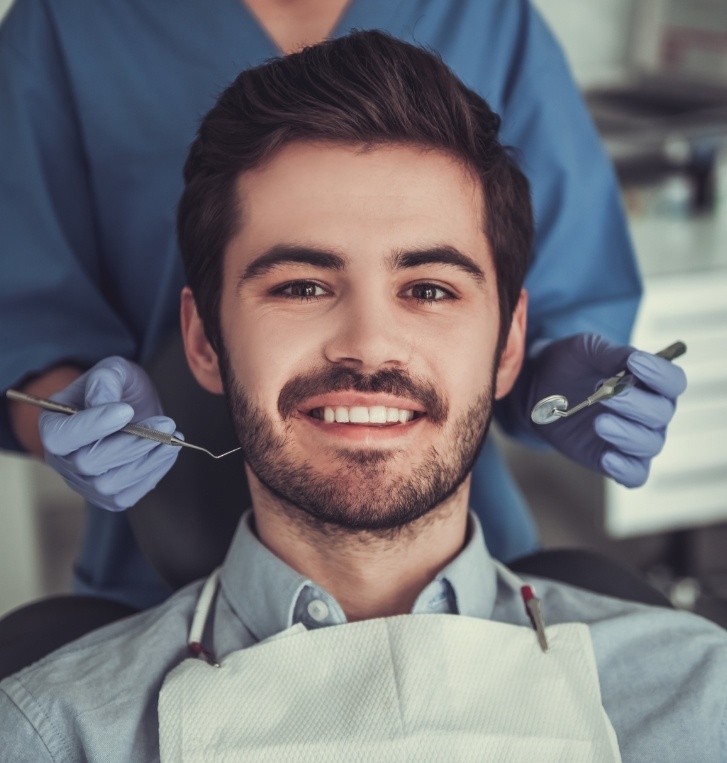Frequently Asked Dental Questions - Hillsboro, OR
Get All of Your Dental Questions Answered

Do you have questions about treatments, at-home oral hygiene, or dental insurance coverage? Our team is here to help you get all of the answers you need. Below, we’ve compiled a short list of some of the most common questions that we receive from our patients. If you don’t see what you’re looking for, feel free to reach out to us!
How often should I change out my toothbrush?
The American Dental Association recommends switching out your toothbrush or electric toothbrush head every three months, or whenever you get sick. If your bristles are fraying, this is also a good sign that you need a new toothbrush.
Is chewing gum really good for your oral health?
Sugar-free chewing gum has been shown to increase your saliva flow, which helps neutralize harmful oral bacteria, reduce plaque accumulation, and ultimately keep cavities from developing.
Will dental insurance cover Invisalign treatment?
Some dental insurance plans may cover Invisalign treatment if it’s deemed necessary to maintain good oral health. The best way to find out is to contact your provider directly.
Is it really necessary to floss?
Flossing your teeth is a crucial part of keeping plaque and tartar accumulation to a minimum. It will also keep you from getting cavities in-between your teeth, which can be painful!
Why does my dentist take X-rays every year?
Every year, we’ll capture X-rays of your mouth so we can see the area that’s located below your gums. This way, we can spot tumors, cysts, impacted teeth, and even infections that may be developing.
How can I get my children to brush their teeth?
Getting children invested in their oral health can be a struggle. Fortunately, we have some tips and tricks that we’d be happy to share with you when you bring them in for their checkup and cleaning. We recommend finding new ways to make it fun and developing reward systems that don’t involve sugary sweets!
What can I do about sensitive teeth?
If your teeth are sensitive, it could be due to oral health issues or be completely natural. As long as it's not persistent, you may want to try using toothpaste that’s especially made for sensitive teeth and make sure to use a soft bristled toothbrush. If the discomfort occurs frequently and you can’t pinpoint what’s triggering it, you should visit us for an examination.
